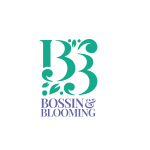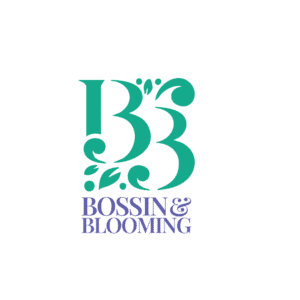Protect Your Peace: Setting Boundaries Without Guilt
Share
I used to think my primary role in life was to be accommodating. I was the “yes” person.
Need someone to stay late at work? Yes. Can you host another family gathering? Of course.
Can I borrow some money/time/energy you don’t really have? Absolutely. I wore my ability
to please everyone like a badge of honor, confusing agreeableness with kindness. But
underneath the surface, I was drowning.
The truth is, I was exhausted. My energy was depleted, my personal goals were gathering
dust, and a quiet resentment was starting to build. I remember one particular week where I
had said “yes” to three extra work projects, a friend’s last-minute request to pet-sit, and a
family obligation I was dreading. By Friday night, I was sitting in my car, too tired to even
drive home, and I just started to cry. It wasn’t one thing; it was everything. I had given away
so many pieces of myself that there was nothing left for me.
That was my rock bottom. I realized that my peace was not something other people were
supposed to give me; it was something I had to actively protect. This started my messy,
uncomfortable, and ultimately life-changing journey of learning how to protect your peace.
It meant I had to start setting boundaries in every area of my life, and most painfully, I had
to learn how to do it without feeling crushed by guilt. If you feel like your energy is
constantly being drained by the demands of the world, I want to share my story and the real-
world strategies that helped me reclaim my life.
The Misconception About Boundaries
For a long time, the word “boundary” felt selfish and harsh. I thought setting a boundary was
like building a wall to keep people out. I was afraid of disappointing people, of being seen as
difficult or uncaring. This fear is what keeps so many of us trapped in cycles of people-
pleasing.
But one of the most powerful lessons I’ve learned on this journey is that you have to allow
people to think what they want—and that’s okay. Part of protecting your peace means
accepting that you can’t control how others perceive you or what conclusions they draw
about your choices, your boundaries, or even your character. There’s no need to get upset or
lose sleep over someone else’s opinion, even if it feels unfair or inaccurate. I had to learn to
focus on my own sense of calm and well-being, trusting that the people who truly know me
and respect my boundaries will understand. Letting go of the urge to manage other people’s
perceptions is key; your energy is better spent nurturing your own peace than trying to
rewrite someone else’s story about you.
Here’s the truth I had to learn: boundaries are not walls. They are gates. They give you
control over who and what you allow into your life. They are not about shutting people out;
they are about letting yourself in. A boundary is a clear and honest statement of what is okay
for you and what is not. It’s one of the most profound self-care strategies there is, and it’s the
bedrock of all healthy relationships—including the one you have with yourself. Learning to
set boundaries without guilt is not selfish; it’s essential.
How I Learned to Set Boundaries in Every Area of Life
Protecting your peace is not a one-time decision; it’s a series of small, brave choices made
every single day. The process looks different depending on the context. Here’s how I started
applying boundaries in the areas where I needed them most.
- Boundaries in Relationships (With Friends, Family, Mutual Friends, and
Even Breakups)
This was the hardest part. The people we love the most are often the ones who are most
accustomed to our lack of boundaries. But boundaries become especially important—and
often more complicated—when relationships shift or end. Breakups can sometimes bring out
the worst in people, especially when one person tries to chip away at your peace or reputation
within shared circles like mutual friends, close friends, and even family.
The Story: I have a family member I adore, but our phone calls were emotionally
draining. They would often last for hours and focus entirely on their problems,
leaving me feeling like an unpaid therapist. I would hang up the phone feeling heavy
and exhausted. I dreaded seeing their name on my caller ID, which then made me feel
immensely guilty.Then there was a breakup that became public in all the ways I didn’t want. My ex
started speaking negatively about me to not just their friends but also our mutual
friends and even some of my family members. The ripple effect was huge—I started
hearing secondhand comments, noticed people drawing back, or felt the subtle tension
when I entered a room. It felt like I was not just managing grief from the end of a
relationship, but I was also fighting to keep my peace from being dragged through a
sea of whispers and opinions. It was beyond exhausting.
The Boundary: I had to shift from being a passive recipient to an active participant in
every relationship—even the ones ending or changing. With my family member, the
next time they called, after listening for about twenty minutes, I gently said, “I love
talking to you, but I only have about 10 more minutes before I need to get started on
dinner. Can I call you back tomorrow?” My heart pounded, but I did it.
For the breakup, boundary setting looked and felt different. When mutual friends,
relatives, or my close friends came to me to discuss what they had heard or wanted
“my side,” I started responding with, “I’m focusing on healing and moving
forward—I’d appreciate it if we could change the subject and leave the past in the
past.” If someone persisted or tried to pull me into drama, I learned to pause the
conversation, step away, or even unfollow or mute online if I needed more distance.In some cases, I had to gently explain to family members that I didn’t want to discuss
the breakup or hear about anything my ex was saying. Instead of defending myself
endlessly to every person, I let my actions and my silence protect my peace.
Setting boundaries with mutual friends was sometimes the most difficult, because
those friendships might feel “shared” or in the middle. I started to let go of the need to
manage everyone’s perception and reminded myself: it’s not my job to control who
believes what. I could only control my response and the space I created for my own
healing.
The Result: My family member took the new boundary in stride, and it changed how
I felt about our conversations. I was more present, more loving, and actually looked
forward to talking because I knew I was honoring my needs too.
In the aftermath of the breakup, the sense of relief was immense. The less I engaged
with drama or tried to explain myself to every mutual friend or relative, the more
peace I found. Some friendships faded, and while that was painful, it made room for
healthier, more respectful connections going forward. Ultimately, standing up for my
peace—and refusing to let gossip, misunderstandings, or other people’s opinions
erode it—became a declaration of self-respect. Boundaries really are the bravest self-
love we can practice, especially when everyone seems to have an opinion or wants
more from you than you’re able to give.
Actionable Tip: Use the “I feel/need” formula. Instead of saying “You always call at the
wrong time,” try “I feel a bit overwhelmed right now and need some quiet time this evening.
Can we connect tomorrow?” In difficult or sensitive situations like a breakup, say, “I need to
create distance from this conversation so I can heal—please respect that.” It centers your
feelings and needs without placing blame.
2. Boundaries at Work (Protecting Your Time & Sanity)
The workplace is a breeding ground for boundary violations. The pressure to be a “team
player” can often mean sacrificing your own well-being.
The Story: I used to be the go-to person for last-minute projects. My manager knew
I’d say yes, even if it meant working late. My desire to be seen as competent and
reliable was leading directly to burnout. I was succeeding at my job but failing at my
life.
The Boundary: I had to get comfortable with saying “no,” or more accurately, “not
right now.” When a new request came in, instead of an automatic “yes,” I started
saying, “Thank you for thinking of me for this. Let me check my current workload
and the deadline for this, and I will get back to you by the end of the day.” This pause
was critical. It gave me time to assess if I genuinely had the capacity, instead of
reacting out of a desire to please.
The Result: Sometimes, I found I could take on the work by reprioritizing something
else. Other times, I went back and said, “Given my current commitments to Project A
and B, I won’t be able to give this the attention it deserves within that timeline. I could
either help with a smaller piece of it, or I could take it on next week.” This positioned
me not as unhelpful, but as strategic and professional. My colleagues and manager
respected my honesty and my ability to manage my time effectively.
Actionable Tip: Block out “focus time” in your work calendar. Treat these blocks like you
would any other meeting. It’s a clear, visual boundary that communicates to others (and
yourself) that your deep work time is unavailable and important.
3. Boundaries with Yourself (The Most Important of All)
The Story: My biggest personal boundary violation was my addiction to my phone. I
would scroll endlessly in the morning, filling my head with noise before I was even
fully awake. I would scroll at night, sacrificing precious sleep for one more hit of
dopamine. I had no boundary between my digital life and my real life.
The Boundary: I implemented a simple but firm rule: no phone for the first hour of
the day and the last hour before bed. The phone now charges in the kitchen overnight,
not on my nightstand. That last hour of the day is for reading a book, talking with important people, or journaling. The first hour is for coffee, quiet, and setting my intention for
the day.
The Result: The change was nothing short of miraculous. My sleep quality improved
dramatically. My mornings went from being reactive and anxious to calm and
intentional. By creating this digital boundary, I created sacred, protected space for my
own peace and quiet. It was an act of declaring that my own thoughts were more
important than the endless scroll.
Actionable Tip: Schedule “do-nothing” time in your calendar. This isn’t time to run errands
or catch up on chores. This is 15-30 minutes of intentional white space. You can listen to
music, sit and watch the clouds, or simply be. This is a boundary against the cult of constant
productivity.
Your Invitation to a More Peaceful Life
Learning to set boundaries is a skill. It takes practice, and you won’t always get it right. There
will be times you feel the sting of guilt. But on the other side of that temporary discomfort is
a world of peace, energy, and self-respect you never thought possible. You are teaching
people how to treat you, and you are teaching yourself that your well-being is a priority.
This is your life. You get to decide what you allow into it. You have the power to protect your
peace. It’s the ultimate way to sign up for something greater for yourself.
If this story resonates with you, and you are ready to start choosing peace over pleasing
people, then I invite you to continue this journey with us. Our community is a space for these
kinds of honest conversations, a place to find support and strategies to build a life on your
own terms.
Join the Bossin & Blooming Community Here and let’s learn how to protect our peace,together.




Be Social
Join Followers